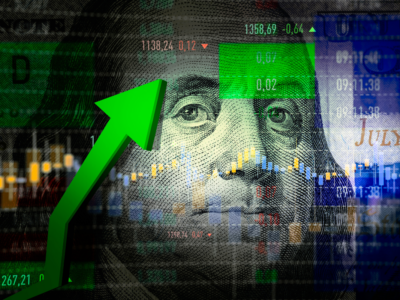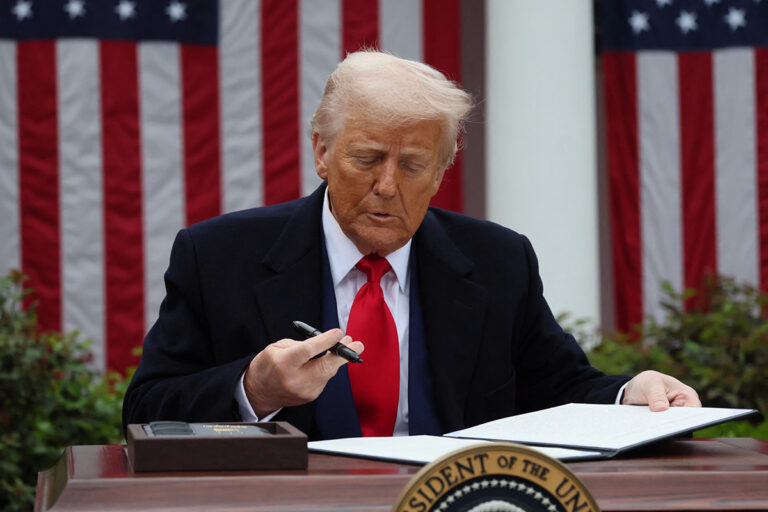Governments worldwide issued stern rebukes on Thursday following President Donald Trump’s sweeping new tariffs, with many threatening countermeasures in what experts warn could develop into the largest disruption to global trade patterns since the 1940s.
The controversial tariffs, unveiled during a ceremony Trump dubbed “Liberation Day” at the White House Rose Garden, establish a baseline 10 per cent duty on all imports to the United States alongside higher “reciprocal” rates reaching as high as 54 per cent for nations with substantial trade surpluses against America.
China vows ‘firm countermeasures’ under 54% burden
Beijing reacted with particular force to its combined 54 per cent tariff burden—a newly announced 34 per cent levy atop an existing 20 per cent duty. China’s Commerce Ministry issued a statement calling for immediate cancellation of what it termed “typical unilateral bullying practice” that would harm international supply chains.
“Global economic development is endangered by such measures,” the statement read, with officials pledging “resolute actions” to defend Chinese commercial interests.
Economic analyst Wang Wen from Renmin University’s Chongyang Institute suggested several potential responses available to Beijing, including imposing matching tariffs, currency adjustments, or restricting exports of strategically important rare earth elements.
“Previous tariff campaigns failed to reduce bilateral trade or China’s surplus position,” Wang told The Guardian. “The prevailing view among Chinese citizens is that America’s trade offensive lacks meaningful impact.”
In a separate measure particularly targeting Chinese e-commerce, Trump eliminated the “de minimis” provision that had permitted duty-free entry of packages valued under $800. This change, effective from May 2, affects companies like Shein and Temu, with data showing roughly 60 per cent of such shipments originate from China.
EU signals countermeasures to 20% duties
The European Union, facing a 20 per cent tariff specifically mentioned by Trump during his announcement, responded through Commission President Ursula von der Leyen, who characterised the American move as inflicting “dire consequences” globally.
Von der Leyen confirmed that Brussels stands ready to implement its own trade measures should diplomatic efforts prove unsuccessful. “While we prioritise dialogue, the European Union is prepared to take appropriate steps to defend our economic interests if negotiations reach an impasse,” she stated.
“The universal tariffs announced by the U.S. are a major blow to businesses and consumers worldwide. Europe is prepared to respond. We’ll always protect our interests and values. We’re also ready to engage. And to go from confrontation to negotiation,” she posted on X following the announcement.
UK relieved at 10% baseline assessment
Officials in London expressed cautious relief at receiving only the standard 10 per cent tariff rather than higher rates applied to many trading partners. This could suggest that Prime Minister Starmer’s diplomatic approach toward the new American administration may have contributed to this relatively favourable treatment.
Nevertheless, economic forecasts could suggest that even at this lower rate, British exports face significant challenges, with potential consequences including job losses and possible fiscal adjustments later in the year.
Indian authorities analysing impact of 26% tariff
Indian trade officials began assessing the implications of their 26 per cent tariff, imposed after Trump characterised the country as maintaining “very, very tough” barriers against American products. The president claimed this represented half of India’s supposed 52 per cent duty on US goods.
“Our initial evaluation suggests a nuanced picture rather than uniform negative impact,” a senior commerce official told Indian media, highlighting that India’s substantial pharmaceutical exports remained exempt from the new regime.
The government has reportedly been exploring tariff reductions on approximately $23 billion worth of American imports, spanning sectors from jewellery to auto parts, as it seeks to address its $46 billion trade imbalance with the United States.
Global response spans from confrontation to negotiation
Nations across Asia and beyond demonstrated varied approaches to the tariff announcement.
South Korean acting president Han Duck-soo convened crisis talks with his economic team, declaring the situation “extraordinarily serious” and requiring comprehensive government mobilization. With automotive exports representing nearly half of the country’s global vehicle sales, South Korea’s manufacturing sector faces particular vulnerability under the 25 per cent tariff.
Japanese leadership questioned the fundamental reasoning behind uniform tariff application. Prime Minister Shigeru Ishiba emphasised Japan’s position as America’s leading foreign investor, suggesting this should merit differential treatment in trade policy.
Taiwanese authorities labeled their 32 per cent assessment “profoundly unreasonable” while revealing they had anticipated potential tariffs for months. Officials have been evaluating strategies including increased energy procurement and potential tariff reductions to rebalance commercial relationships with Washington.
Despite Australia facing only the standard 10 per cent rate, Prime Minister Anthony Albanese delivered sharp criticism: “A genuinely reciprocal approach would result in zero tariffs between our nations, not 10 per cent. This policy contradicts both economic logic and the foundation of our alliance.”
Canada’s Prime Minister Mark Carney, while acknowledging his country avoided additional duties beyond previously imposed measures, nevertheless pledged robust countermeasures to protect Canadian economic interests.
White House defends trade reset as necessary correction
Trump characterised the tariffs as essential to reverse decades of disadvantageous trade arrangements that undermined American manufacturing capacity. During his announcement, he declared April 2 would be remembered as industrial America’s rebirth.
“Our economic sovereignty has been compromised by foreign interests who have systematically exploited American openness,” Trump stated. “Today marks our declaration of economic independence.”
Treasury Secretary Bessent subsequently warned against retaliatory measures from affected nations. “The responsible approach is restraint rather than escalation,” Bessent told CNN. “Countries responding with their own tariffs will only accelerate negative consequences for all parties.”
According to the White House, the tariffs will remain effective until trade deficits and “non-reciprocal treatment” are adequately addressed, with presidential authority retained to adjust rates based on trading partners’ responses.






